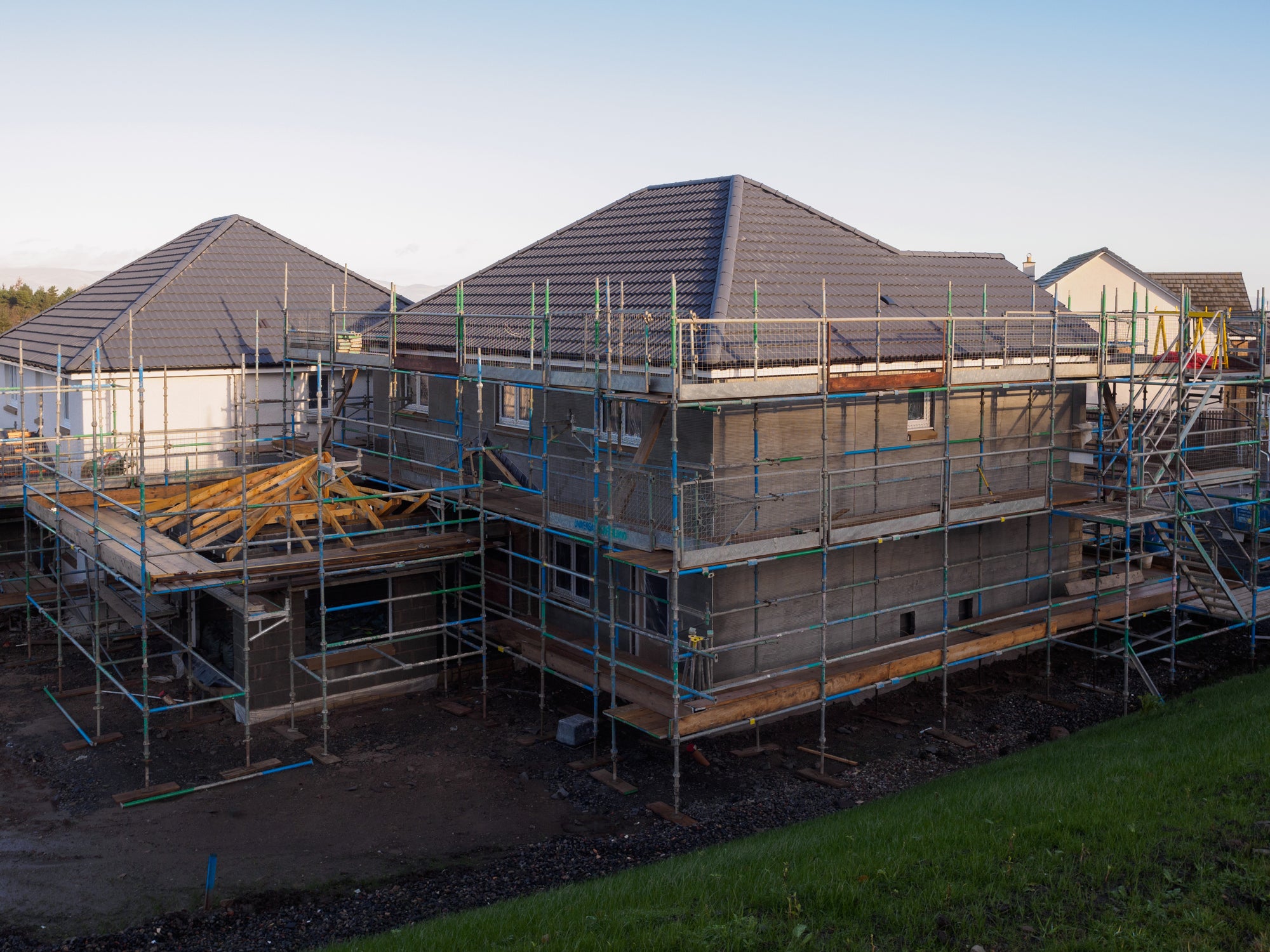Housebuilder Taylor Wimpey tried to ‘derail’ climate targets, says Greenpeace investigation
Company described government policy as ‘too ambitious’, Greenpeace says

Your support helps us to tell the story
From reproductive rights to climate change to Big Tech, The Independent is on the ground when the story is developing. Whether it's investigating the financials of Elon Musk's pro-Trump PAC or producing our latest documentary, 'The A Word', which shines a light on the American women fighting for reproductive rights, we know how important it is to parse out the facts from the messaging.
At such a critical moment in US history, we need reporters on the ground. Your donation allows us to keep sending journalists to speak to both sides of the story.
The Independent is trusted by Americans across the entire political spectrum. And unlike many other quality news outlets, we choose not to lock Americans out of our reporting and analysis with paywalls. We believe quality journalism should be available to everyone, paid for by those who can afford it.
Your support makes all the difference.Taylor Wimpey, one of the UK’s biggest house builders, allegedly tried to “derail” a government policy that aimed to reduce the environmental impact of new-build properties, according to a Greenpeace investigation.
According to documents obtained by Greenpeace, the company argued in a consultation that the government’s proposed target of a 75-80 per cent cut in greenhouse gas emissions from new-build homes by 2025 was “too ambitious”.
The company also said the policy’s requirement for new-build homes to be better-insulated was “too demanding”, Greenpeace said in an article on their
Meanwhile, other leading developers such as Barratt Homes and Berkeley Group, backed the improvements set out by the government’s proposals.
Greenpeace UK’s head of climate, Kate Blagojevic, told The Independent: “Taylor Wimpey’s attempts to derail essential carbon reductions from the housing sector are fuelled by nothing but greed.
“It’s far easier and cheaper to build homes fitted with heat pumps and proper insulation than it is to install them at a later date – but Taylor Wimpey are happy to leave homeowners to foot the bill when it comes to making these necessary carbon-cutting improvements further down the line."
She added: “We urgently need government policies that force housebuilders to start building homes fit for a zero-carbon future because it’s clear the industry won’t do it by themselves. Not only will this slash emissions but it will also make people’s homes warmer, cheaper to run and, with the right incentives, create a domestic heat pump and green homes industry that would deliver new jobs and boost the economy. It’s win, win.”
A Taylor Wimpey spokesperson suggested to The Independent the Unearthed article misrepresented the company’s stance on carbon reductions and the company supported the government targets.
The company said: “Climate Change is one of the great challenges of our age and we recognise that urgency is required to mitigate it. At Taylor Wimpey we constantly look to improve our environmental strategy, which in the past year has been updated to include an ambitious carbon reduction target approved by the independent Science Based Targets initiative.
“Taylor Wimpey communicated its support in the consultation response and remains fully supportive of the UK government’s target to achieve net zero emissions by 2050. We also embrace the Future Homes Standard with its ambition to reduce carbon emissions from homes in use by 75-80 per cent by 2025.
“In response to the government’s calls for honest interaction and dialogue around the Future Homes Standard in 2020, Taylor Wimpey identified a number of challenges relating to the practical implementation of the proposals. These challenges led to concerns that the delivery of viable and much-needed new housing could be prejudiced, which we duly communicated to the government in our response.”
The Greenpeace investigation comes amid increased scrutiny over the government’s planning reforms, and how the changes could impact the natural world.
By 2025, the government has said it wants to be building 300,000 homes a year. The new planning rules would mean land would be sorted into zones either for “growth” or “protection”, and people would no longer be able to object to plans agreed for individual houses.
Last year Boris Johnson blamed “newt-counting delays” for preventing the construction of new homes.
However, charities including Greenpeace, Friends of the Earth, the countryside charity CPRE, the RSPB and the Woodland Trust have said the plans risk damaging critical ecosystems including ancient woodlands and key wildlife habitats.
Join our commenting forum
Join thought-provoking conversations, follow other Independent readers and see their replies
Comments